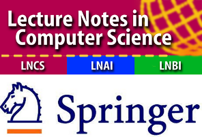Invited Speakers

|
Prof. Yajun Yang
Tianjin University
Title:Prediction of Public Opinion Topic Spread on Large-scale
Social Networks under Complex Public Opinion Environment.
|
Abstract: As an important medium for information propagation, the study of public opinion propagation mechanism on social networks can help people deeply understand the whole process of the outbreak, diffusion and extinction of public opinion events, s thereby significantly enhancing the governance ability of governments and enterprises against false or undesirable content. In the real world, the spread of public opinion events is profoundly influenced by the intricate public opinion environment. Within the complex public opinion environment, multifaceted factors such as user social relationships, individual preferences, characteristics of public opinion events, pivotal users, sphere effects, and various complex public opinion field effects collectively affect the propagation process of public opinion events. In this talk, we introduce our recent studies on predicting the public opinion event propagation of large social networks under the complex public opinion field environment. These studies mainly encompass three aspects: inference of users' propagation preference, propagation model of public opinion events based on the sphere effect, and analysis and prediction of the propagation of public opinion events under the effect of complex public opinion field. These studies can achieve accurate prediction of public opinion propagation in complex public opinion field environments.

|
Prof. Tianxing Wu
Southeast University
Title:Knowledge Graph Reasoning with Large Language Model
|
Abstract: The current mainstream knowledge graph reasoning method is induction oriented statistical reasoning, which starts from data and predicts potential relationships in the knowledge graph based on statistical models. It is mainly divided into end-to-end statistical reasoning and interpretable statistical reasoning. In the era of large language models, how to use external parameterized knowledge rich in textual semantics to support end-to-end statistical reasoning and interpretable statistical reasoning is a research direction worth exploring. Therefore, this talk will introduce the cutting-edge work of knowledge graph reasoning based on large language model, and discuss the relevant difficulties and challenges from the perspectives of deterministic knowledge graph and uncertain knowledge graph.
